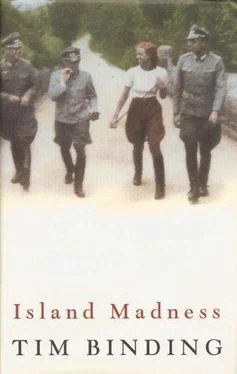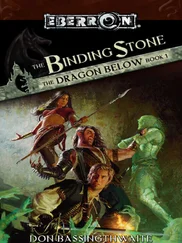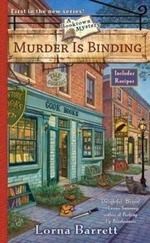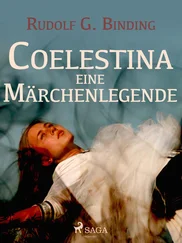When it was over he stood still, breathing hard. She did not know where to look, what her eyes might tell him. He was watching her closely. He had expected something more perfunctory. He was impressed.
“I must go,” he said eventually. “They are waiting for me.”
She jumped down and held the coat open against him, terrified he might turn around.
“ Gruss und kuss Veronika . Remember?” she said, propelling him gently backwards, holding him fast with her mouth and body. She could hear breathing now, she was sure of it. She reached round and pushed open the door. He was out onto the path.
“Do you like horses?” he asked. “Riding?”
She had never been on a horse in her life. They frightened her.
“Love it,” she said. “Anything outdoors.”
“I will send a message perhaps. To your shop.”
“ Gut. Sehr gut .” She took his hand away from her. “Now let me get some beauty sleep.”
She stood in the doorway as he walked back, hearing the soft clip of the door and the whine of the engine as he pulled away, remembering too late the clothing that lay on the car floor. Back in the shed she picked up a spade and held it across her chest, like a rifle at port arms.
“Is that you, Tommy?”
There was no sound. The breathing had stopped. She jabbed at the dark.
“Come on! Come on! You can show yourself now!”
She stabbed at the black air again, and this time made contact. There was a squeal and the boxes fell in front of her. She jumped back in fright. She didn’t care who she woke now.
“Come on! Out with you! He’s coming back, you know!”
A figure came out from behind the fallen pile, small and pale. She could smell him even in this wind.
“Pliss!”
She didn’t recognize the accent but she knew who he was, or where he came from. One of the Todt workers. He stood there, uncertain, ready to run. They saw them only at first or last light, standing in the backs of lorries, or shuffling along the road with picks and shovels slung over their shoulders. Most of the time they were in the forbidden zones, building fortifications. The islanders tried to take no notice of them. They were nothing to do with them, after all. Who in the world had seen anything like them, with their gaunt stares and dark faces, thinking incomprehensible thoughts? They looked barely human as it was. Molly had told her that half of them were from asylums, the others bad people, Communists and the like. When they weren’t locked up in their billets they were prowling about the countryside lifting whatever they could lay their hands on. But this one didn’t look so terrible.
“What are you doing here?” she asked, as if she didn’t know. He said nothing. She stood in the doorway and pointed to her mouth.
“Food? You come to steal food?”
He shook his head. As she moved to chuck him out he crouched down, raising his arm to ward off the blow. He could be no more than sixteen. Perhaps younger. It was difficult to tell with the foreigns. Must be starving to be out at this hour. She remembered the food table and how the girls had all crowded round it. They were no different, elbowing each other aside for the next greasy mouthful. It was all slave labour of sorts. She grabbed his wrist and dragging him over, pulled the cheese out from her bag.
“Eat,” she said.
He took it carefully, turning it in his hands.
“It’s OK,” she said. “Eat. It’s good.”
He held it up and took a bite. He found it hard to chew and swallow.
“Drink?” she asked, tipping her hand. “Water?”
He nodded.
“Come on, then.”
She led him along the path to the back door, where the cottage leant into the soil like an old farm labourer used beyond his years. She held her index finger to her lips.
“Shh. OK?”
The boy nodded.
X
Once in the kitchen she drew the curtains and switched on the light. The boy was white from head to foot, white on his long clumpy hair, white on his hollow watchful face and white on his anxious legs. Only the cut of his muddy jacket, of incongruous quality, gave him substance, that and the dark red well of his sunken eyes. Tied round his waist he wore a grubby pair of football shorts, and his feet were planted in boots three sizes too big for him.
She cut him a thick slice of bread and poured him a glass of milk. She had always imagined the foreigns to be quick and furtive, but he took his time, eating slowly, pausing to swallow. He held the unfinished cheese between his knees. White cheese against white knees. White milk and white bread. She wished she could give him something with a little colour in it. They were long and thin, his legs, made for climbing cliffs and stealing gulls’ eggs and falling offbikes. Legs like Ned once had, legs for legging it. When he had finished he looked to the door and began to rub his calves.
“You can’t go out like that,” she said.
The boy did not understand.
“Clothes,” she said, slapping her thigh. “ Vêtements . You need more clothes.” She pointed to the floor. “Stay,” she commanded.
In the front room lay a pile of pantomime costumes she had brought back to mend: a couple of pirates’ outfits, some fairies’ wings, and the clothes for the lost boys. There was a pair of thick red flannel trousers in amongst them she had patched only the night before.
“Here,” she said, coming back in. “Put these on.”
He hesitated.
She mimed for him again, tugging and straining as she tried to pull them over an imaginary pair of boots. His mouth flickered with laughter.
“Go on!”
As he took them her dad’s voice came floating down.
“Veronica? Is that you?”
The boy looked to run, but Veronica shook her head.
“Who you got down there?”
Footsteps came down the stairs. A short man in trousers and a shirt peered round the door. Since her mother had been bedridden, her father had taken to sleeping on the floor beside her in his clothes.
“What in Christendom is that?” he demanded.
“A foreign,” she said. “I found him outside.”
“Trying to rob us, the little tyke. I’ll learn him.” He raised his hand. Veronica caught it in mid-air. There was no power behind it.
“No, Da. Look at him. He’s starving, poor little mite.”
“And you’re breaking the rules, girl. You know that. Go on, sling your hook.” He made for the back door. Veronica put her weight against it.
“He’s not going till he’s properly fed,” she said. “And that’s that. Now get back to bed. What you don’t see you don’t know.”
“Get us all killed,” her father complained. “Wake Mum up.”
“How is she?”
Her father looked at the boy, who was too frightened to move, and then at his daughter. He hardly knew her any more.
“Restless. Small wonder with her daughter coming home at all hours.”
“It’s all in a good cause, Da,” she said.
“And what cause might that be?”
“Survival. More grub.”
The boy stood up and drew his jacket around him. He held his hands in prayer and bowed before them. He seemed agitated.
“ Lager Ute ” he said. “ Lager Ute .”
“What’s he saying?” Veronica asked her father.
“That’s his billet. Near the Todt Headquarters. He’ll need to get back there before it gets light.” He held up his hand. “I don’t know why I’m doing this.”
He moved to the side dresser and bent down. They heard the clatter of the bread bin. He came up holding a paper bag.
“Egg and tomato pie. Mrs Luscombe brought it round this afternoon.” He broke it in two and stuck half in the boy’s pocket. “Now vamoose, before you get us all shot.”
Читать дальше












